18:53
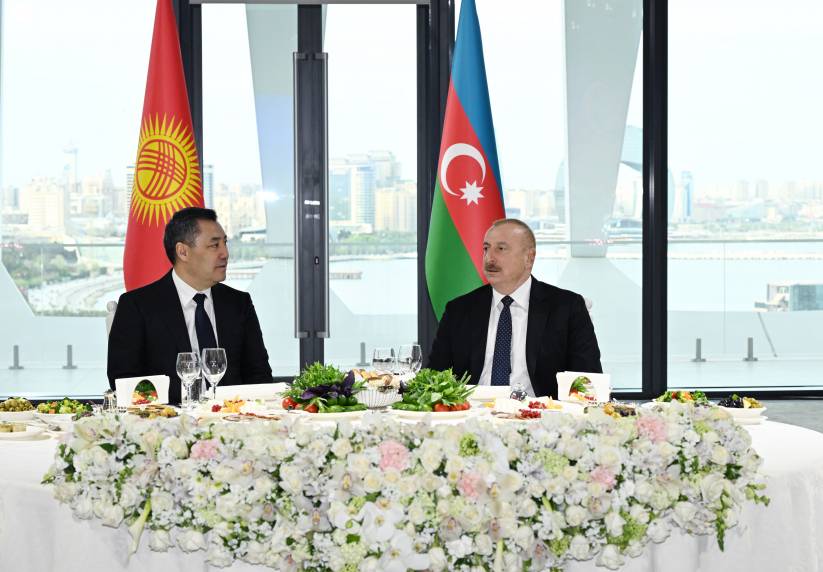
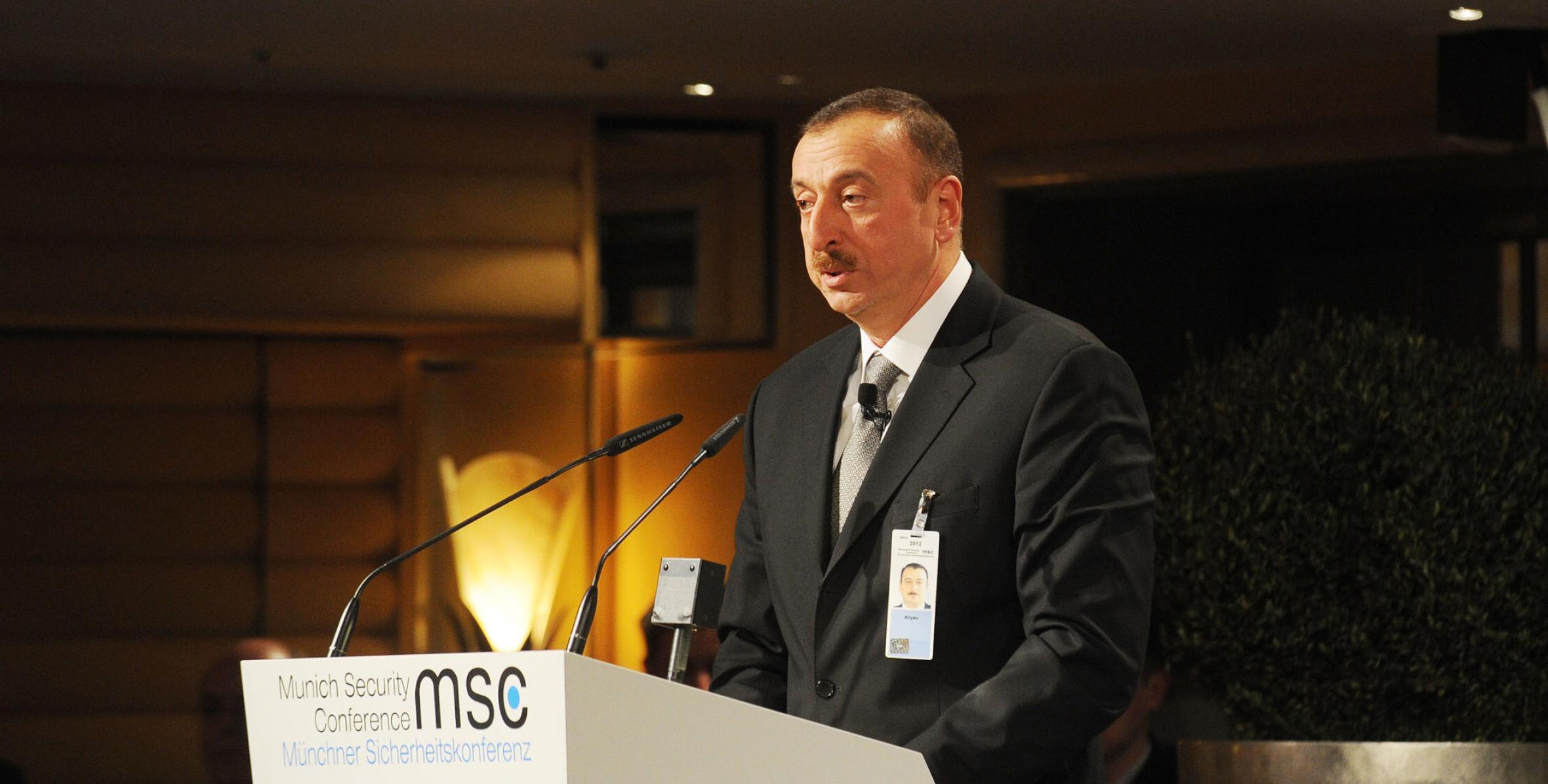
President Ilham Aliyev, who is paying a working visit to Germany, has participated in the discussions on the subject of “Energy, Resources and the Environment: New Security Parameters”, one of the key events of the 48th Munich Security Conference. Also attending the event was Azerbaijan’s First Lady Mehriban Aliyeva.
The host of the event, Minister of Foreign Affairs of the Kingdom of Sweden Carl Bildt, thanked President Ilham Aliyev and other guests for attending the conference.
Introducing the President of Azerbaijan as a keynote speaker, Carl Bildt said:
We have distinguished participants here who will make presentations. We have President of Azerbaijan Ilham Aliyev. He has been President since 2003. Also attending the event are the European Union Commissioner for Energy, Gunther Oettinger, the chairman of Allianz, Michael Diekmann, the executive director of Greenpeace International, Kumi Naidoo, and President of Ukraine Viktor Yanukovych. After a brief introduction, we are giving the floor to President of Azerbaijan Ilham Aliyev.
President Ilham Aliyev addressed the conference.
Remarks by President Ilham Aliyev
- Thank you very much. First of all, I would like to thank the organizers of the Munich Security Conference for the invitation.
I am very glad to come here and speak on this important issue.
I want to say that Azerbaijan is one of the oldest oil-producing countries. In fact, it was in Azerbaijan that the first oil was produced industrially in the mid-19th century. But a lot has changed since then. After restoring its independence, the Azerbaijani people became masters of their wealth. Over the 20 years, thanks to the rational use of its energy resources, Azerbaijan has become a diversified economy. The energy projects which have been ongoing since the mid-1990s at the initiative of our country have significantly changed the energy map of the Caucasus and Caspian regions and are changing the energy map of Europe.
The energy corridor we have constructed, a major pipeline transporting oil from the Caspian to the Mediterranean Sea, is not only benefiting the people of Azerbaijan and our partners, but is also proving effective for our future projects.
Azerbaijan is also known as a country with ample reserves of gas. Our gas field of Shah Deniz, with reserves exceeding 1 trillion cubic meters, is one of the largest in the world. The discovery in 2010 and last year of new gas fields confirms that Azerbaijan’s gas reserves exceed 2.5 trillion cubic meters. It is clear that these reserves will be enough for us, our partners and consumers.
We are currently working on a broader energy corridor. It will cover not only the oil but also the gas sphere. We are now at a very important and difficult stage in our energy projects, when important decisions are made that will significantly influence the energy security of our region. Of course, Azerbaijan has ensured its own energy security. But without the markets we will not be able to realize our projects fully. We now have a diversified network of pipelines. Azerbaijan does not have direct access to the sea. The diversified network of pipelines enables us to transport our oil and gas in different directions. Therefore, diversification is of great importance for us as producers. We understand that it is also important for consumers. On the issue of energy security, we must find and I think we are finding the right balance between the producer, Azerbaijan, and consumers. Nor can we forget about the interests of transit countries. Therefore, the balance of interests and a prudent approach to the interests of our partners are key to the successful implementation of our projects.
Addressing this conference today, at the beginning of 2012, I am more optimistic about the future of the Southern Gas Corridor. There are several reasons for this optimism. First of all, as I noted earlier, the discovery of new gas fields, the already available transit infrastructure, although there isn’t too much of it. Secondly, the growing European demand for our energy resources, as well as a very fruitful cooperation between European institutions and Azerbaijan, which has developed into a true partnership in the past few years. The visit by the European Commission President to Azerbaijan in 2011, the signing of the Declaration on the Southern Gas Corridor and the establishment of a working group co-chaired by distinguished Mr. Oettinger – all these factors create a very positive picture of our future plans.
Another important event of the past year was the signing of a gas transit agreement between Turkey and Azerbaijan, which will actually open up the “big door” for the supplies of Azerbaijani gas to Europe. We are now in a unique situation. We have a need for the European market. Because, first of all, it is a big market. Secondly, this market is governed by law.
Of course, this is a growing market, the market for our partners. The European market needs alternative sources of supplies.
We talk a lot about diversification and energy security. These two issues are inter-related. But when we talk about diversification and energy security for European consumers, I think we need to talk more about diversification of sources, rather than the diversification of routes from one source. But the diversification of routes is also important. Thus, Azerbaijan is a new, large, close and friendly source for European consumers. If we can implement our plans on the construction of the powerful Southern corridor, we will enter a phase of a very fruitful and mutually beneficial energy cooperation in the next decade. Therefore, energy security has become an important national security issue. We, as producers, understand this and want all our partners to treat this issue in the same manner.
No country can build future development plans without energy security and prognostication. We are aware of the changes and approaches to the various sources of energy, especially after the tragedy at the Fukushima nuclear plant. Thus, it is clear that the demand for gas is set to grow.
Azerbaijan is a resource-rich country committed to open policies and having strong links with European institutions.
I would also like to say a few words about our obligations not only as a country rich in energy resources, a producing, transporting and potentially a transit state, but also as a country that treats its natural resources with great care. For many years, decades, for more than a century Azerbaijan's oil reserves were developed without any attention being paid to the environment. The concept of the “environment” was not evaluated in due measure in the past. Today, our obligation is to clean up the “legacy” left over from the decades of oil production off- and onshore and to contribute to the global environmental cause. So even though we have oil, gas and markets, we are now investing in renewable energy. We believe that this is part of our commitment. We are investing in hydropower engineering. Last year we began to invest in solar and wind energy. Not because we desperately need these alternative sources. No. Not because this is an important part of our energy balance. But because we treat this as an obligation to the previous and future generations. So I am very glad that, along with environmental protection matters, we are discussing energy security and energy resources today. Azerbaijan is ready to play a role in the energy security, we are ready for diversification and protection of our nature. Thank you very much.
Speaking next were European Commissioner for Energy Gunther Oettinger, President of Ukraine Viktor Yanukovych and others.
Х Х Х
The exchange of views was then continued and questions asked on the subject.
Question: I feel that we are talking more about the political situation in the countries in which we can invest and about the geographic corridor. So I want to address my question to Mr. Diekmann because the identification of potential business risks and work on them are part of your scope. I would like to ask you: last year we witnessed riots in Egypt and Tunisia.
Have there been any changes in your work over this year on assessing the risks associated with the political situation in energy-rich countries? Using the experience of countries such as Egypt – the President of Azerbaijan is also present here – will you invest in a country such as Azerbaijan, which, in terms of its political structure, is very similar to Egypt prior to the overthrow of Mubarak?
President Ilham Aliyev: I would like to comment on the question which actually represents an attempt to present the situation in Azerbaijan as being similar to that of Egypt. I think the best answer to this strange question has been the reaction from the audience. I want to bring to your attention several indicators that the person who asked this question does not know on the strength of poor awareness. Over the eight years of my presidency, the gross domestic product in Azerbaijan increased three times – by 300 per cent. The poverty rate has dropped from 50 to 7.6 per cent. Inflation is 5.4 per cent. Over the past eight years we have created over 1 million jobs. Our foreign debt constitutes 6 per cent of the gross domestic product. Economic diversification is stable.
Our political situation is stable. We have a multiparty system. More than 10 parties are represented in our parliament. We have a free press. We have freedom of speech. We have freedom of religion. Finally, we have free Internet. I would like to note that not all the countries in our region have free Internet. The number of Internet users in Azerbaijan exceeds 50 per cent of the population, and this figure is growing.
There is a modern and stable society in Azerbaijan. If someone wants to see similarities with events in Egypt in Azerbaijan, I can assure you that regardless of your desire, you will not see that.
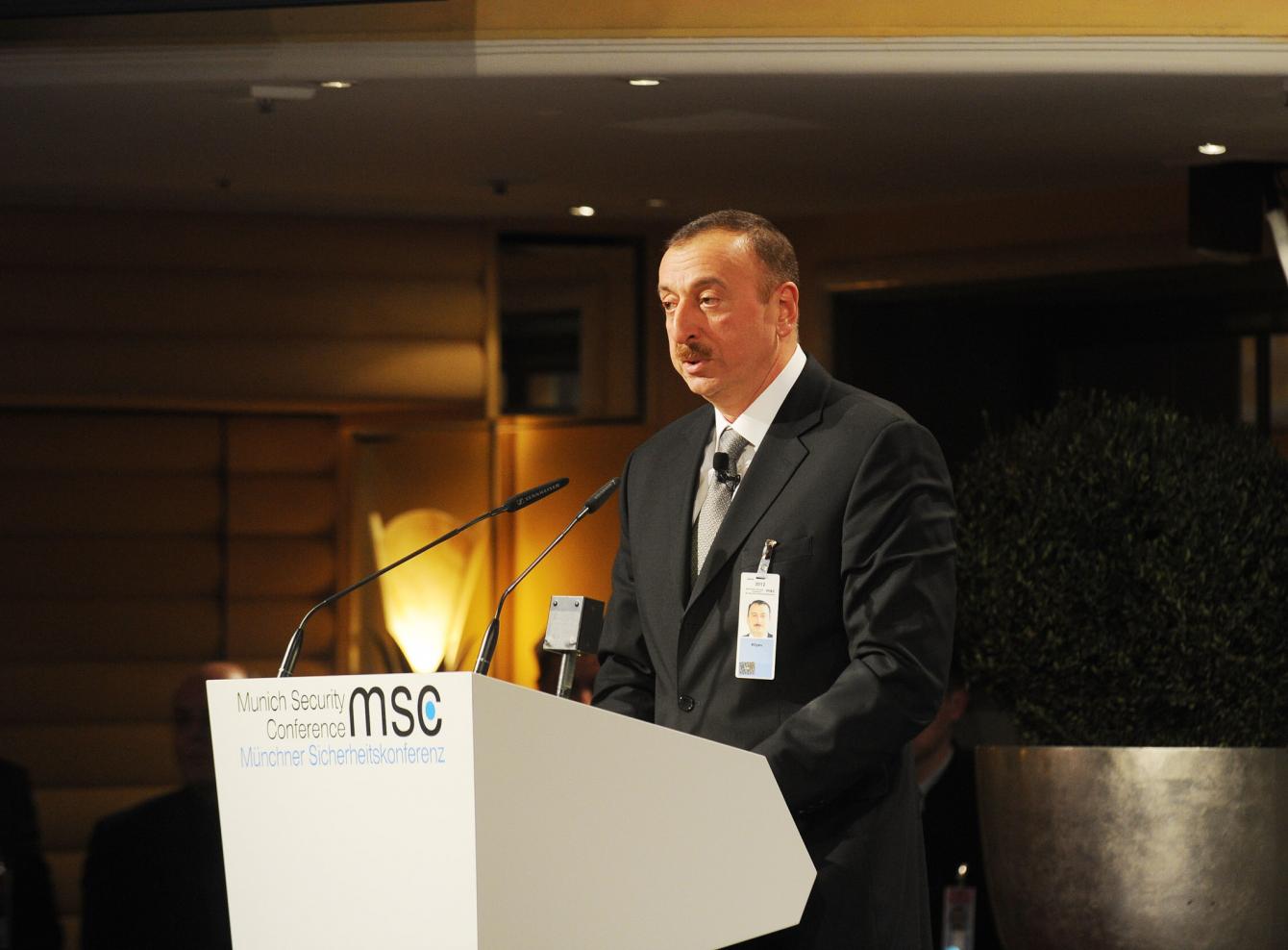
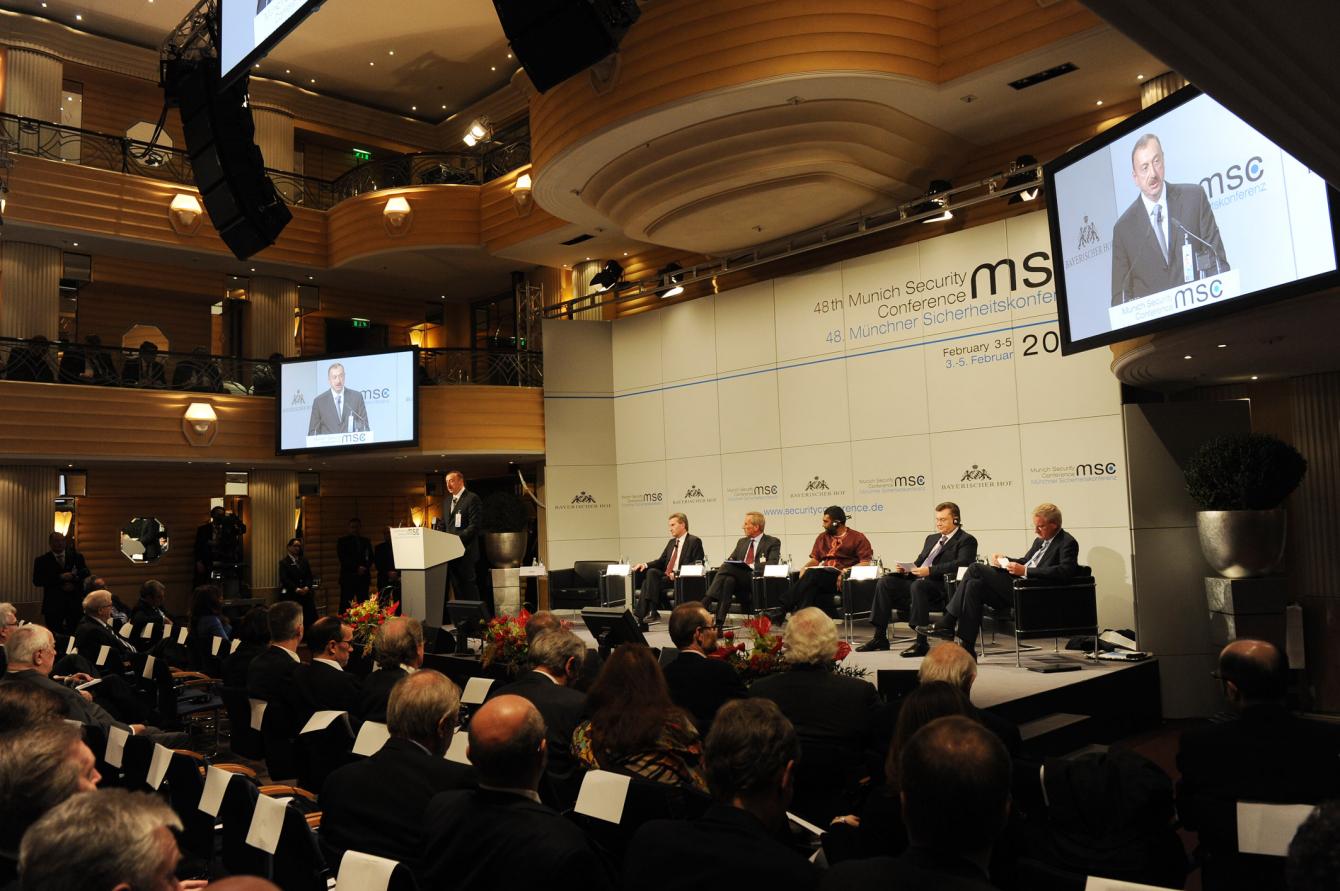
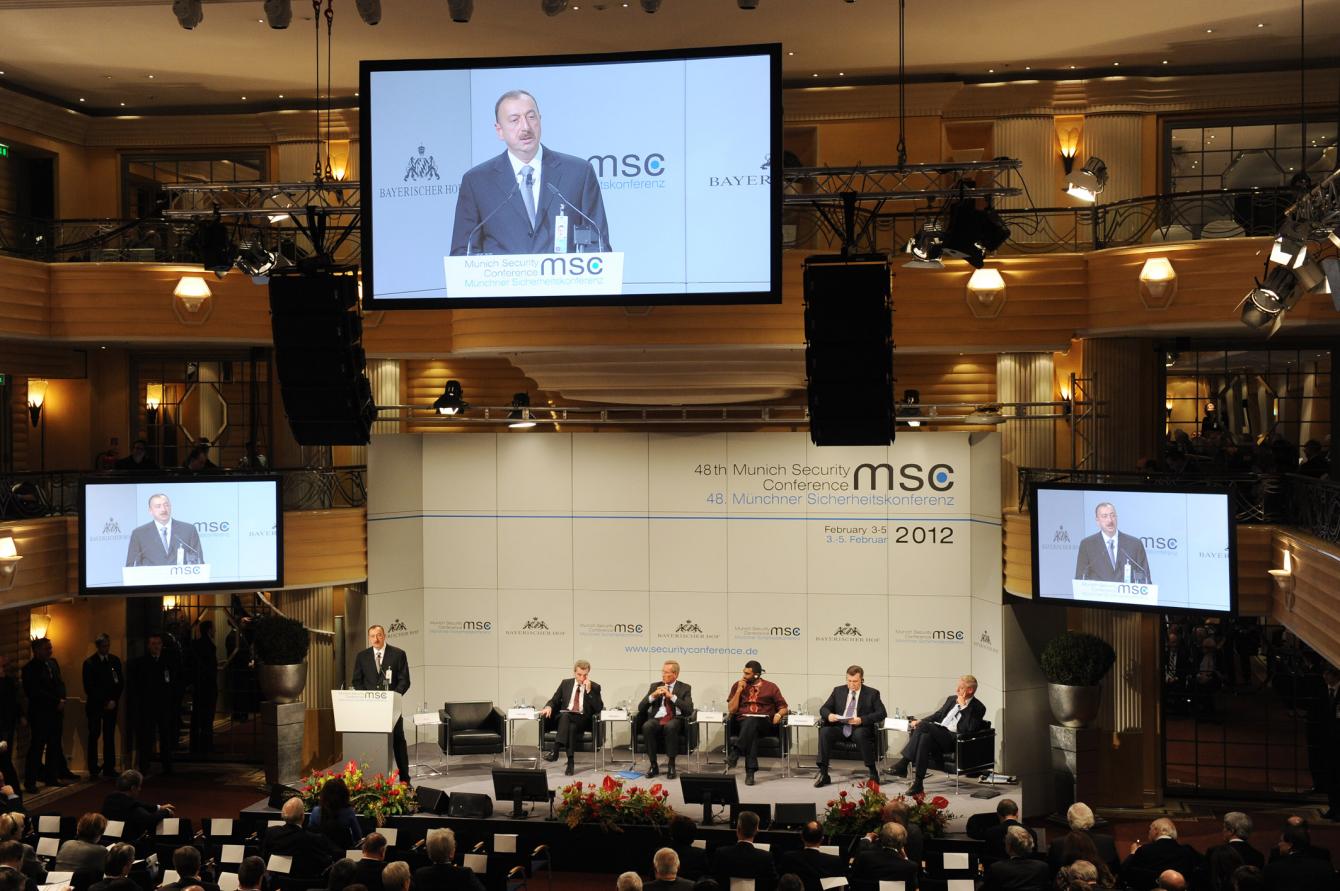

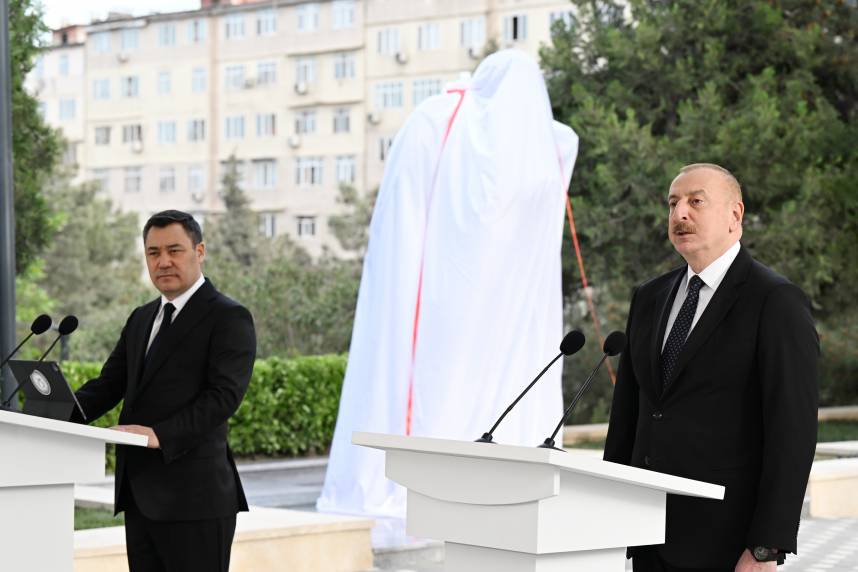
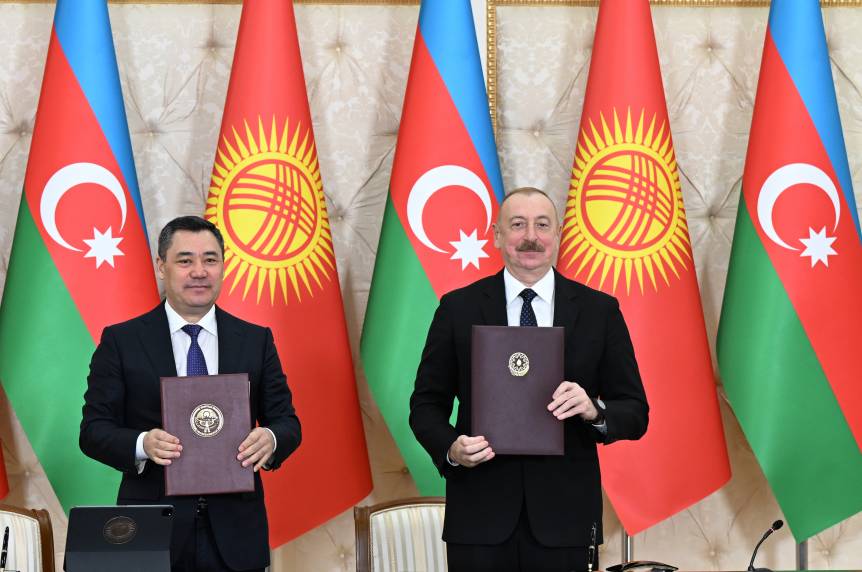
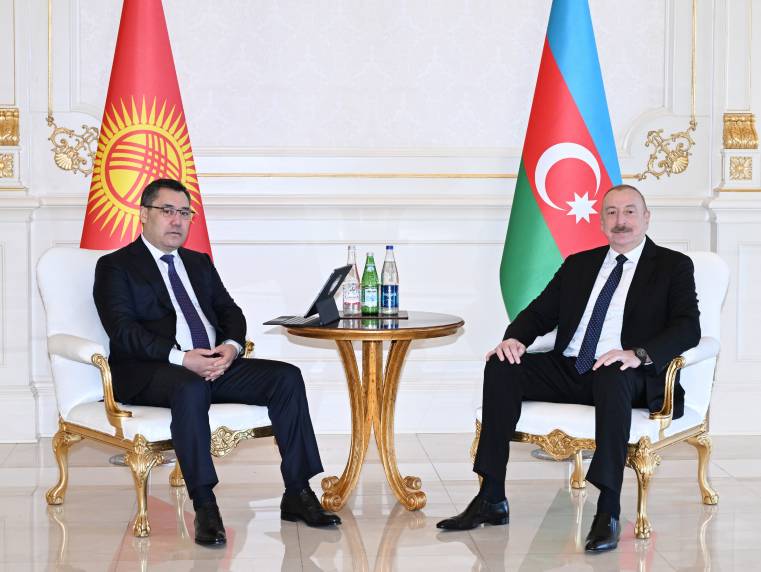
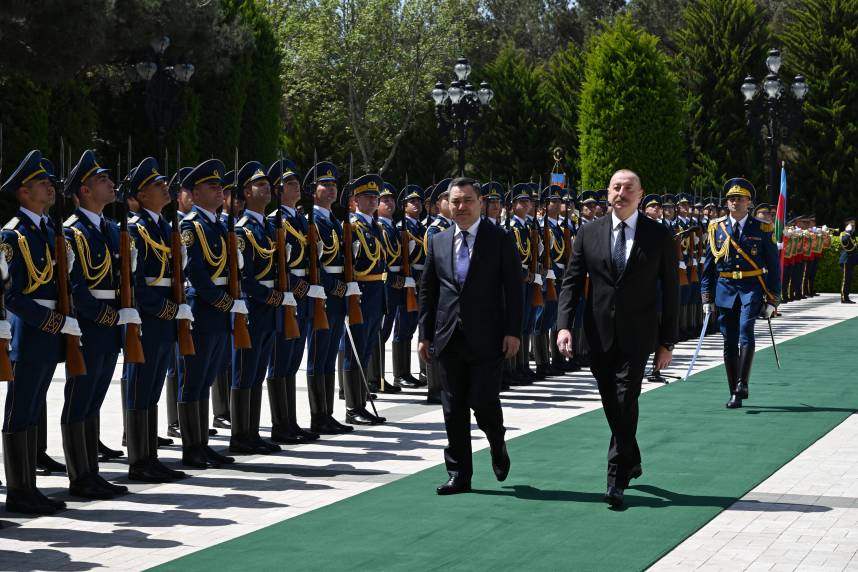
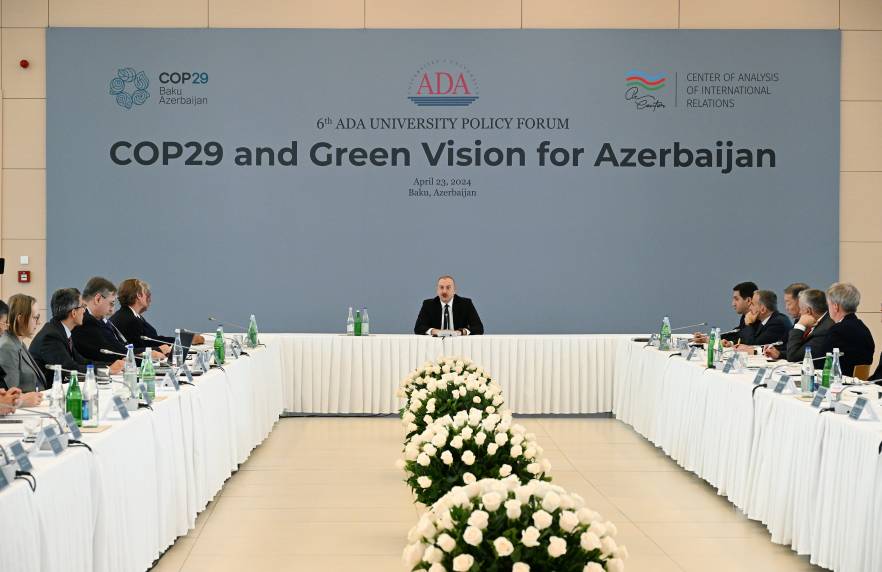
President of the Republic of Azerbaijan Ilham Aliyev completed his working visit to the Russian Federation on April 22.
22 April 2024, 23:13Ilham Aliyev, President of the Republic of Azerbaijan, and Vladimir Putin, President of the Russian Federation, had a joint dinner in Moscow on April 22.
22 April 2024, 20:48